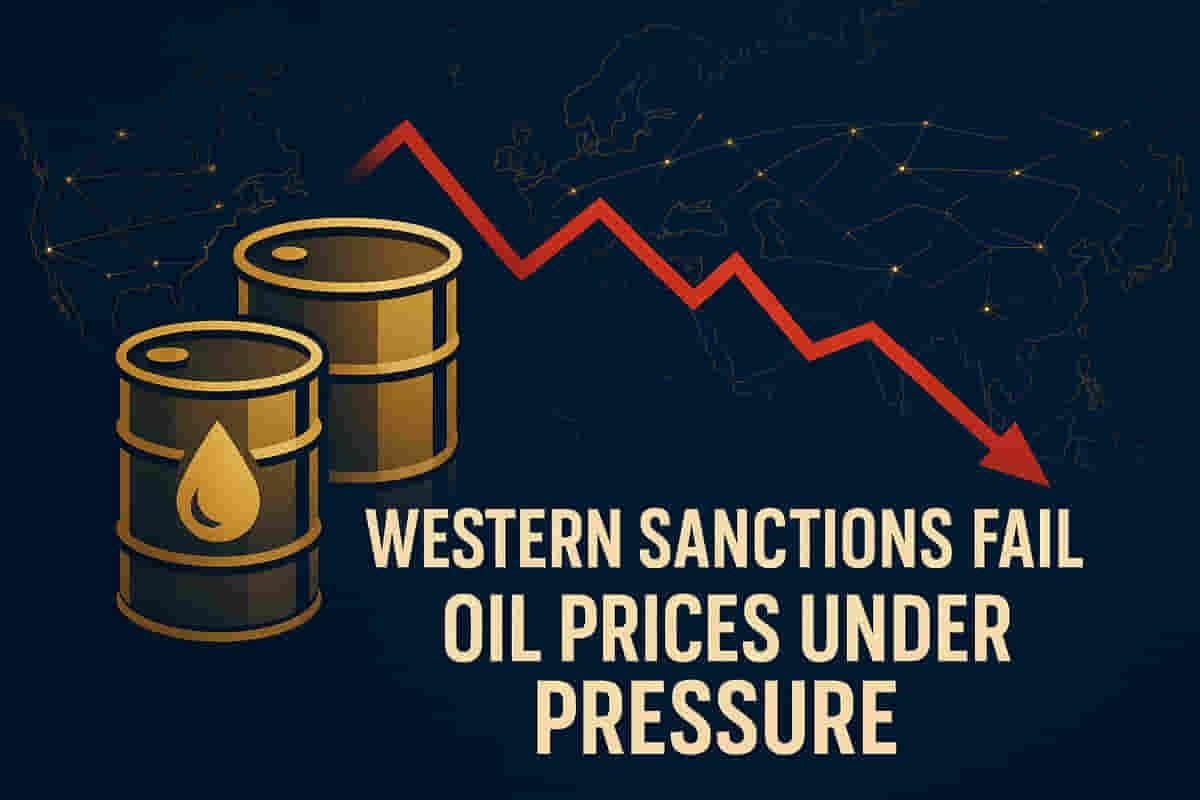Western Sanctions Ineffective Against Russian Oil Exports, Prices Under Pressure
Energy
|
Updated on 31 Oct 2025, 09:14 am
Reviewed By
Aditi Singh | Whalesbook News Team
Short Description :

▶
Detailed Coverage :
The recent sanctions imposed by the US Treasury on Russian oil companies Rosneft and Lukoil have failed to significantly disrupt global oil markets. Markets recognize Russia's established methods of circumventing sanctions, including the use of 'shadow fleets,' third-country intermediaries, and trading in non-dollar currencies. These tactics enable Russia to maintain approximately 80-90% of its export volumes. While sanctions have reduced Russia's oil revenues and export volumes since 2022, they have not crippled the sector, partly due to Europe's continued dependency and enforcement gaps.
In the short term, being blocked from US financial systems could disrupt 1-1.5 million barrels per day (bpd) of Russian oil trade. This potential disruption could shift the market from a surplus to a deficit, leading to price increases of $6-$7 per barrel. However, the broader trend suggests oversupply.
India and China, which together absorb a significant portion of Russian exports, are facing challenges. Indian refiners have paused shipments, and China has suspended new seaborne purchases, redirecting to other suppliers. This indicates a shift in global energy flows.
Simultaneously, oil production in the US has reached record levels, with further growth predicted for 2025 and 2026, outpacing demand growth. OPEC+ is also expected to increase its production. This robust supply from major producers, coupled with anticipated sluggish demand growth, points towards a deepening global oil glut.
**Impact** This news has a significant impact on the Indian stock market and economy. Lower global oil prices can reduce India's import bill, easing inflationary pressures and boosting consumer spending. However, the geopolitical instability in the energy market and the limited effectiveness of sanctions highlight ongoing risks. The potential for price swings and supply disruptions remains. Impact Rating: 8/10.
**Difficult Terms** * **bpd**: Barrels per day, a standard unit for measuring oil volume. * **Shadow fleets**: A network of older, often unregistered or ambiguously flagged oil tankers used to transport oil, typically to circumvent sanctions or avoid scrutiny. * **Intermediaries**: Third parties involved in facilitating transactions, often used to obscure the origin or destination of goods. * **Non-dollar trades**: Financial transactions conducted using currencies other than the US dollar, often employed to bypass sanctions tied to the dollar system. * **EIA**: U.S. Energy Information Administration, a government agency that collects and analyzes energy data. * **OPEC+**: Organization of the Petroleum Exporting Countries and its allies, a group of major oil-producing countries that coordinate production levels.
More from Energy

Energy
India's green power pipeline had become clogged. A mega clean-up is on cards.
Latest News

Auto
Suzuki and Honda aren’t sure India is ready for small EVs. Here’s why.

Brokerage Reports
Stocks to buy: Raja Venkatraman's top picks for 4 November

Mutual Funds
Quantum Mutual Fund stages a comeback with a new CEO and revamped strategies; eyes sustainable growth

Tech
Why Pine Labs’ head believes Ebitda is a better measure of the company’s value

Banking/Finance
SEBI is forcing a nifty bank shake-up: Are PNB and BoB the new ‘must-owns’?

Industrial Goods/Services
India’s Warren Buffett just made 2 rare moves: What he’s buying (and selling)
Startups/VC Sector

Startups/VC
a16z pauses its famed TxO Fund for underserved founders, lays off staff
Renewables Sector

Renewables
Brookfield lines up $12 bn for green energy in Andhra as it eyes $100 bn India expansion by 2030
Startups/VC Sector

a16z pauses its famed TxO Fund for underserved founders, lays off staff
Renewables Sector
